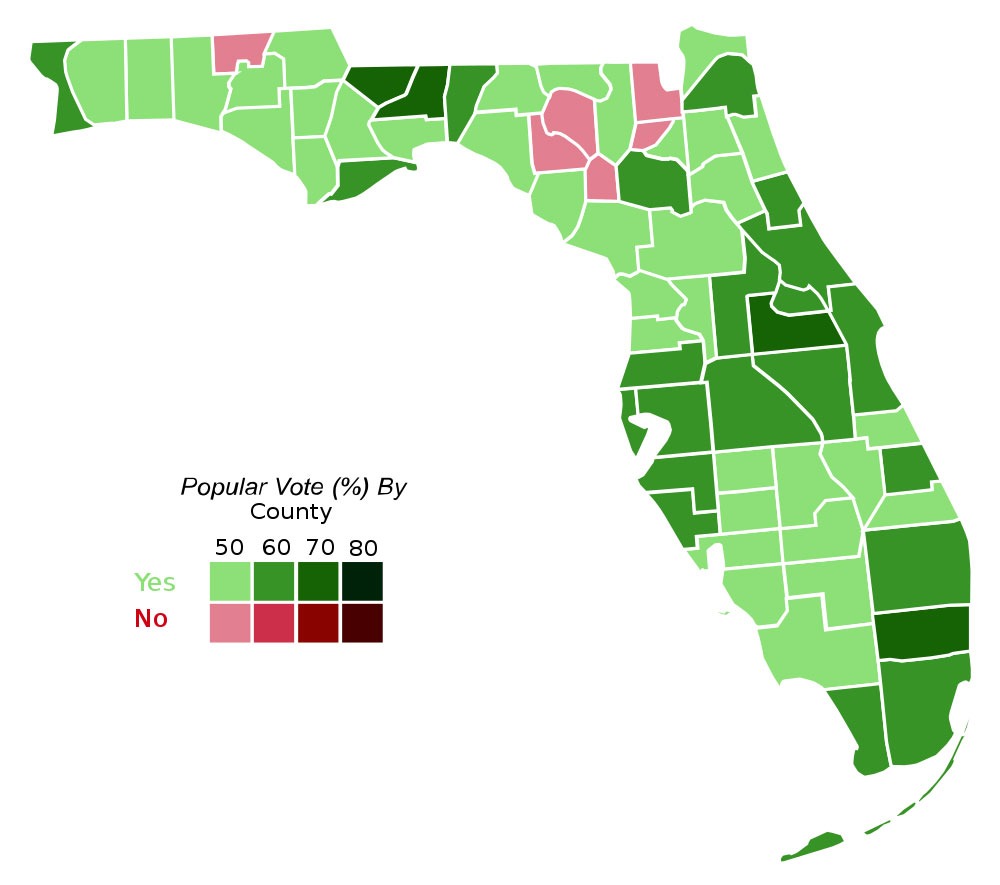
July 18, 2020; New York Times and Slate
Another voting rights case, another US Supreme Court ruling upholding voting restrictions. This one, issued last week, upholds an appeal court’s overturning of a May federal court order that would have enabled an estimated 1.4 million Floridians to vote in the 2020 elections.
To review, here are a few key US Supreme Court decisions that have restricted voting rights:
- In 2013, in Shelby County v. Holder, the US Supreme Court overturned a key provision of the Voting Rights Act of 1965, freeing states with histories of restricting the voting rights of Black Americans to pass laws making it more difficult to vote.
- In 2019, in Rucho v. Common Cause, the US Supreme Court ruled that gerrymandering (i.e., drawing district lines for partisan benefit) was perfectly legal.
- This year, the US Supreme Court faced four separate cases involving voting rights issues in Alabama, Florida, Texas, and Wisconsin. As Adam Liptak of the New York Times points out, while the cases differ, in all four cases the Court has opted to further restrict voting rights.
To add insult to injury, the reasons given for one decision directly contradict the reasons given in another related case.
The bald contradictions in judicial reasoning are most obvious if we compare two recent Court decisions, released within weeks of each other. As NPQ’s Martin Levine wrote earlier this month, in the case of Merrill v. People First of Alabama, petitioners challenged provisions that discourage mail-ballot voting, requiring voters seeking to vote by mail “to find a public notary or recruit two other adults to sign their absentee ballot as witnesses. The state also mandates a copy of a state-approved voter ID be provided when a mail-in ballot is requested, and another copy may also need to accompany the ballot itself.”
As Levine noted, “In normal times, many eligible voters would find meeting these conditions difficult. When physical distancing is a public health mandate, the obstacles are even greater.” But no matter: The Court upheld Alabama’s rules, because, the Court said, it was too close to the date of the election to implement rule changes.
Now, just last week, in the case of Bonnie Raysor versus the state of Florida (Bonnie Raysor et al. v. Ron DeSantis et al.), the same Court has decided that it is perfectly fine to change who is eligible to vote in Florida less than two months prior to that state’s primary elections.
Sign up for our free newsletters
Subscribe to NPQ's newsletters to have our top stories delivered directly to your inbox.
By signing up, you agree to our privacy policy and terms of use, and to receive messages from NPQ and our partners.
NPQ has been following this Florida case for some time now. In November 2018, Florida voters, by a 64.5 percent majority, passed Proposition 4, which amended the state constitution to restore voting rights of formerly incarcerated Floridians who had completed their sentences, except in the cases of murder and rape.
The state legislature then passed a law that sought to effectively overturn the voters’ will, by conditioning restoration of voting rights on payments of unspecified fines—and by unspecified, we mean unspecified. Indeed, as NPQ covered, in May, the Florida law was reviewed by a federal judge, Robert Hinkle. As part of the fact finding for the case, Hinkle noted that an analysis of 153 individuals’ cases selected at random found “inconsistencies in the available information” in 150 of them.
The judge, based on Florida state officials’ testimony, estimated that it might take six years for the state to review the million-plus cases. In his ruling, Hinkle invalidated most of the state law, ruling that the state had 21 days to object to the restoration of any individual’s voting rights and otherwise must let eligible Floridians register to vote.
However, on July 1st, a federal appeals court, without offering a rationale, stayed Hinkle’s 125-page decision 19 days prior to the voter registration deadline for Florida’s August primary elections. The US Supreme Court has now upheld the stay, meaning that voting for Floridians whose voting rights were supposed to be restored by a state vote in November 2018 remain in limbo, including the votes of an estimated 85,000 Floridians who registered after the proposition had passed.
Because the Court, formally speaking, merely upheld the appeal court’s stay, there is no majority decision in the case. However, the action prompted Justice Sonia Sotomayor to write a blistering dissent, which was joined by Justices Ruth Bader Ginsburg and Elena Kagan. Ironically, Sotomayor observes, the same Court that has chosen to not “make voting safer during a pandemic, overriding two federal courts because any safety-related changes supposedly came too close to election day” now “disrupts a legal status quo and risks immense disfranchisement.”
The 11th Circuit Court of Appeals will hold new hearings, slated to begin August 18th. But even if it were to ultimately side with Hinkle, its decision is highly unlikely to come in time to restore voting rights before voter registration for the general election in Florida closes on October 5th. As a result, as Sotomayor points out, the court’s inaction in this case “continues a trend of condoning disfranchisement.”—Steve Dubb












